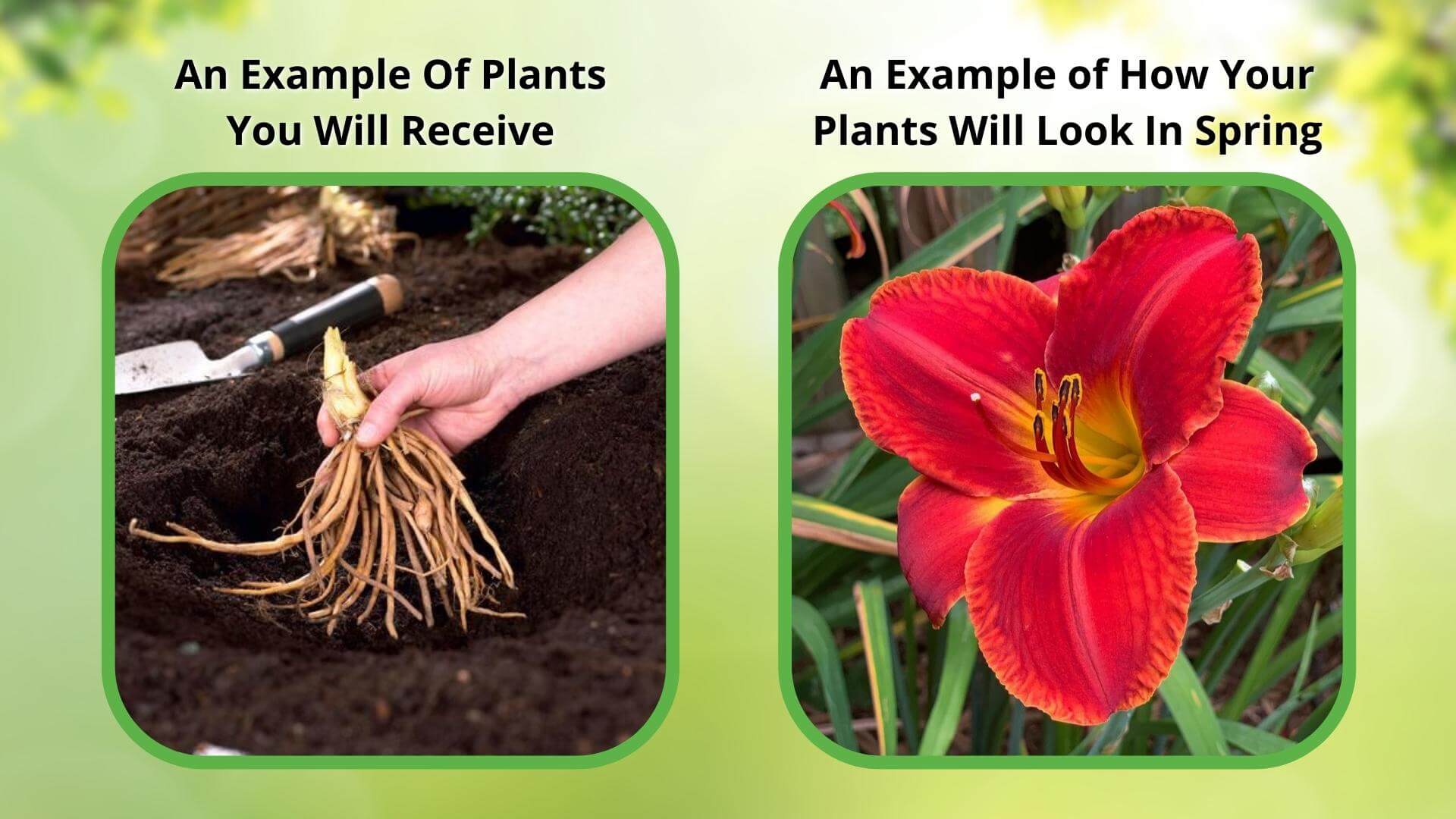Couldn't load pickup availability
🌸When you add 1 plant to cart, it automatically adds the free one
Hummingbird Plants For Sale (Hummingbird Flowers)
Hummingbird Plants are an excellent way to introduce biodiversity to your garden. TN Nursery's deal on these is a starter kit for attracting these birds and spreading your garden. The affordable pricing of this plant set and fast shipping means more hummingbirds in your yard sooner.
This package will imbue your garden with beauty. If you're still trying to convince, here are some great reasons to grow them.
- Low-maintenance: Many hummingbird-attractant plants require little effort on your part, especially the trumpet flower. This easy-to-grow plant will sprout beautiful flowers birds find irresistible.
- Grow your pollinator quotient: You will see more than hummingbirds once your pollinating plants grow. Bees, butterflies, flies, moths, and other pollinators will arrive to share pollen and spread your garden’s greenery
- Exceptional variety: Many will attract hummingbirds, from ivy to flowering trees. TN Nursery stocks more of what you need to grow your garden how you like it.
The Wonder of Nectar-Filled Hummingbird Plants
It's a treat to see hummingbirds flitting about your garden and watching as they rely on your plants’ nectar for sustenance. Better yet, many of the plants are so beautiful in their own way that you'll 'appreciate them even when the birds aren't there.
For example, the coneflower plant is a perennial with flowers like daisies but in alluring purple. Hummingbirds will feed in the conical middle. Trumpet vines contain nectar deep in their red, trumpet-like flowers, while Virginia bluebells have a similar shape but a periwinkle exterior.
10 Hummingbird Plants are Eco Friendly
The Lily of the Valley hangs dramatically upside down, and its bell-shaped white flowers feature scalloped edges. Cardinal flowers, known as lobelias, are colorful and an excellent food source for hummingbirds.
Even unconventional ones, like lily pads or blazing stars, can attract hummingbirds.
Why Shop Hummingbird Plants at TN Nursery?
TN Nursery's team of experts handpicks the ten hummingbird plants included in this collection. They're varied enough to provide a unique, enjoyable growing experience that will lure in more pollinators.
Since 1959, we've provided customers with all the plants their garden needs. We pride ourselves on our low prices (provided through grower-direct plants) and long-term, year-long 100% guarantees on quality.
With our many deals, you can save on vines, ferns, perennials, shrubs, trees, flowers, and plants. You can often buy one, get one free to increase the pollinators your yard attracts. We also provide fast shipping.
Best Selling Pollinating Plants at TN Nursery
Coneflower
Milkweed
This Is How Your Plants Will Look upon Delivery

Bloom Season
Summer
Bloom/Foliage Color
Red
Height at Maturity
Over 12"
Care
Water Hummingbird Plants moderately, allowing the soil to dry out between waterings. Draining soil prevents root rot, and a balanced fertilizer is applied monthly during the growing season. Prune after blooming to maintain shape and encourage growth.
Plant Reproduction
Hummingbird Plants reproduce through seed and stem cuttings.
Shipping date depends on the date displayed and chosen when you order from the product's page.
We only accept returns on plants verified dead. If you think your plants have died, we offer a 1 year warranty, please use use this File a Claim Link to verify dead plants and start with return warranty process.


Caring Tips
How do I care for my 10 Hummingbird Plants?
Each box contains detailed care instructions and information about your product. But here's the basics.
Care Tips
Water Hummingbird Plants moderately, allowing the soil to dry out between waterings. Draining soil prevents root rot, and a balanced fertilizer is applied monthly during the growing season. Prune after blooming to maintain shape and encourage growth.
Light Requirements
Hummingbird plants flourish in complete sun to part shade. They need at least 6 hours of sunlight daily for optimal blooming but can tolerate some afternoon shade in hotter climates.
Hardy Planting Zones
3 • 4 • 5 • 6 • 7 • 8 • 9
Ordering the 10 Hummingbird Plants package from TN Nursery was the best gardening choice I have made. The plants were fresh and healthy.
The 10 Hummingbird Plants from TN Nursery added vibrant color to my shaded walkway. All plants arrived strong and pest free and are growing beautifully.
TN Nursery provided an excellent value with the 10 Hummingbird Plants package. The quality was outstanding, the shipping was fast, and the plants were ready to grow.
The 10 Hummingbird Plants package I purchased arrived in great shape. The plants were mature, well rooted, and are now thriving in my garden beds.
The 10 Hummingbird Plants I ordered were affordable and exceeded expectations. Every plant was lush and healthy, and they are already attracting hummingbirds to my yard.



